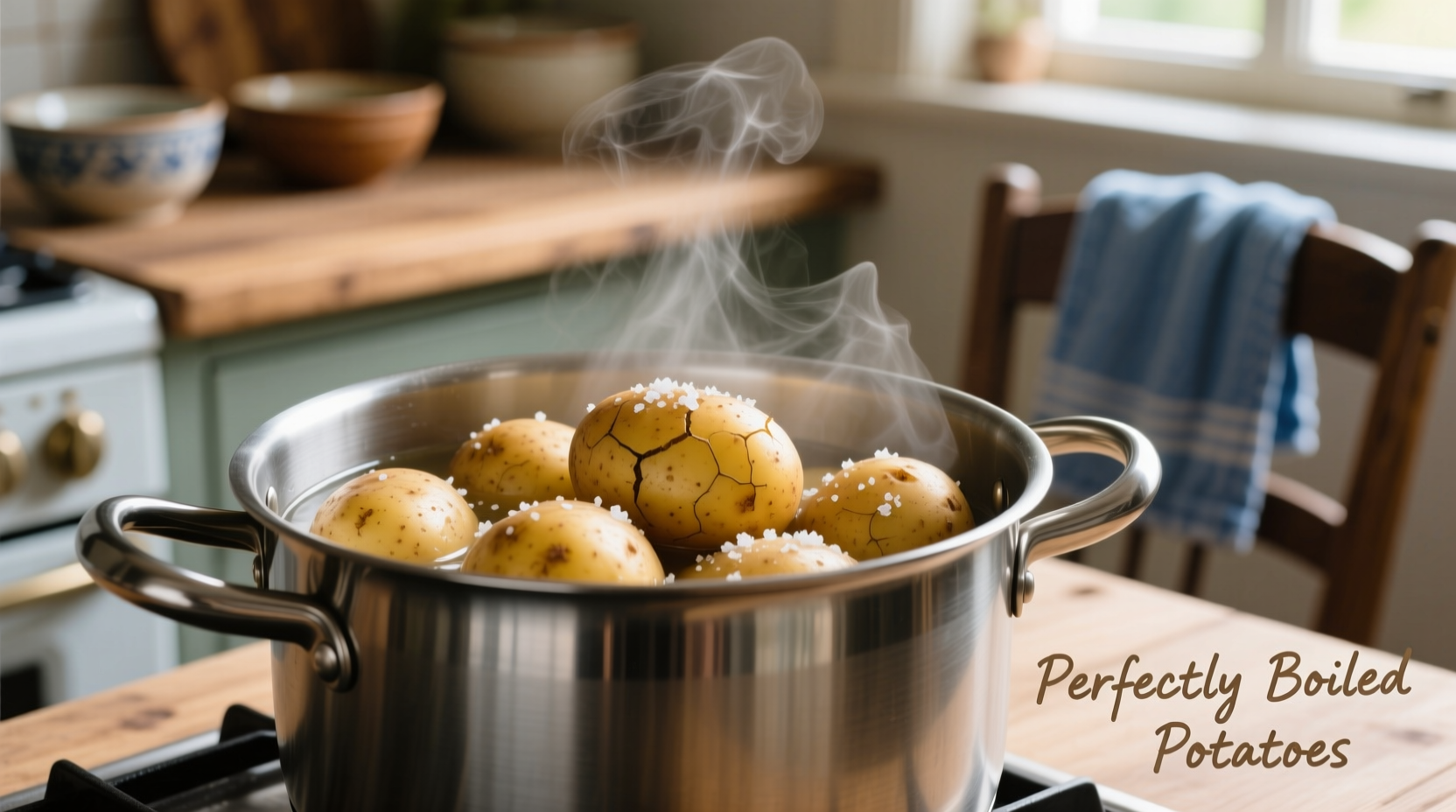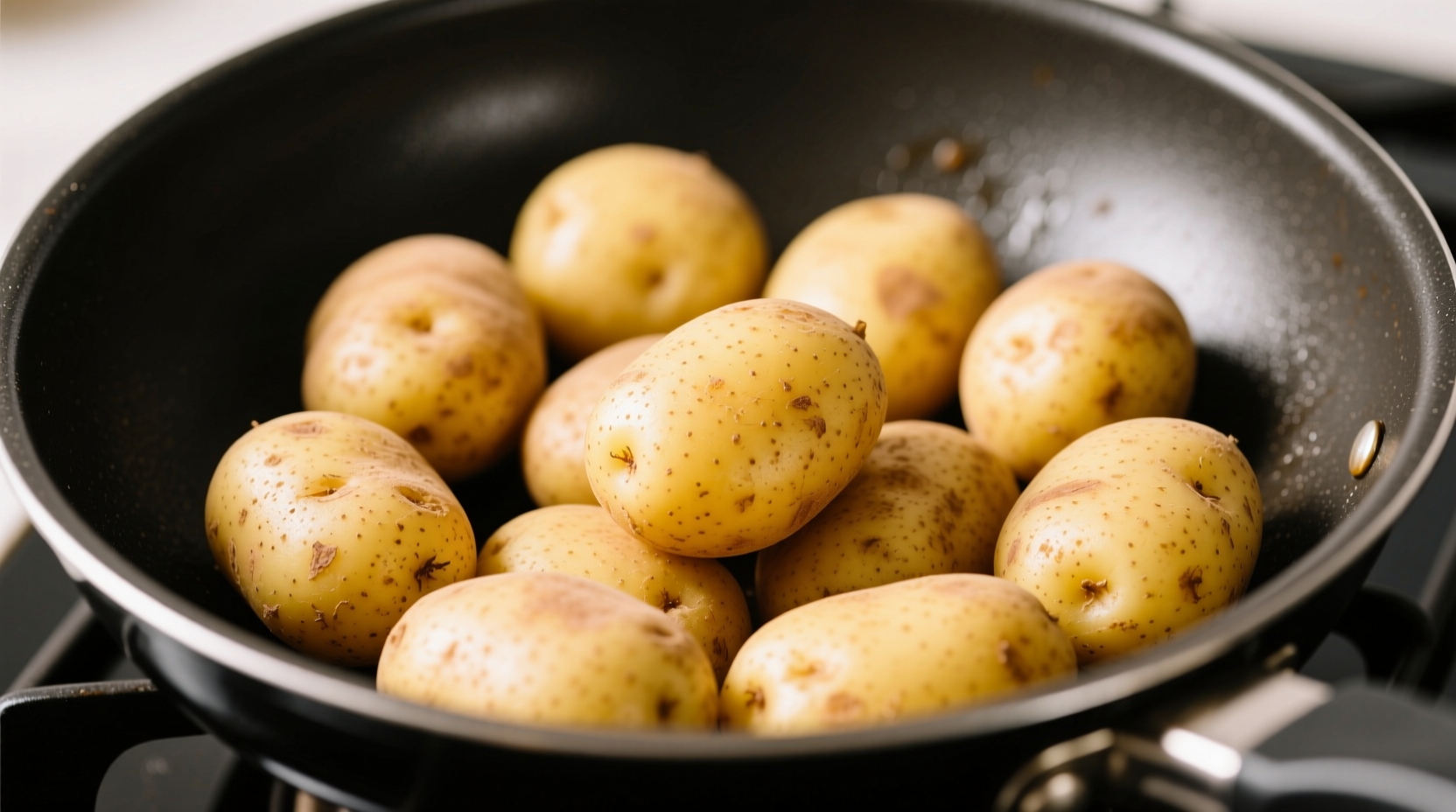Boiling a medium-sized potato takes 15-20 minutes, baking takes 45-60 minutes at 400°F (200°C), and microwaving takes 5-8 minutes. Cooking time varies based on potato size, type, preparation method, and whether it's cooked whole or cut.
Ever stood in your kitchen staring at a raw potato, wondering exactly how long you need to cook it before it's perfectly tender? You're not alone. Getting potato cooking times right is crucial for meal planning, avoiding undercooked chunks or mushy disasters. Let's cut through the confusion with precise timing for every cooking method.
Why Potato Cooking Times Vary So Much
Before we dive into specific timings, understand that "how long does it take to cook a potato" isn't a one-size-fits-all question. Three critical factors dramatically affect cooking duration:
- Potato variety - Russets need longer than waxy red potatoes
- Preparation method - Whole potatoes take longer than cubed
- Size - A small new potato cooks much faster than a large russet
According to the USDA Food Safety and Inspection Service, potatoes must reach an internal temperature of 210°F (99°C) to be fully cooked and safe to eat. This scientific benchmark explains why timing alone isn't sufficient - you need proper testing methods too.
Boiling Potatoes: The Classic Method
Boiling remains the most common potato cooking method, but timing depends on your preparation:
| Potato Preparation | Size | Cooking Time |
|---|---|---|
| Whole, unpeeled | Small (1-2" diameter) | 15-20 minutes |
| Whole, unpeeled | Medium (2-3" diameter) | 20-25 minutes |
| Cubed (1" pieces) | N/A | 10-15 minutes |
| Sliced (¼" thick) | N/A | 8-12 minutes |
Professional chefs at America's Test Kitchen recommend starting potatoes in cold, salted water rather than boiling water. This ensures even cooking from edge to center. Always use a fork or skewer to test doneness - it should slide in with no resistance.

Baking or Roasting Potatoes
Oven-cooked potatoes develop delicious caramelized exteriors while staying fluffy inside. Timing varies significantly based on preparation:
- Whole russet potatoes: 45-60 minutes at 400°F (200°C)
- Halved potatoes: 35-45 minutes at 400°F (200°C)
- Cubed potatoes (1" pieces): 25-35 minutes at 425°F (220°C)
Cornell University's Food Science Department notes that baking potatoes in their skins retains more nutrients and prevents sogginess. For crispier results, parboil potatoes for 5 minutes before roasting - this technique creates the perfect fluffy interior with crunchy exterior.
Microwave Cooking: Fastest Method
When time is critical, microwaving delivers surprisingly good results:
- One medium potato: 5-8 minutes on high
- Two medium potatoes: 9-12 minutes on high
- Always: Pierce skin 4-5 times with fork first
Flip potatoes halfway through cooking. Let them rest for 2 minutes after cooking - they'll continue cooking from residual heat. This method works best for single servings when you need potatoes quickly for a meal.
How to Tell When Potatoes Are Perfectly Cooked
Timing guidelines are helpful, but these foolproof testing methods ensure perfect results every time:
- The Fork Test: Insert a fork or skewer into the thickest part. It should slide in with zero resistance.
- The Squeeze Test (for baked potatoes): Carefully squeeze - properly cooked potatoes yield slightly under pressure.
- The Knife Test (for boiled potatoes): A sharp knife should slide in and out effortlessly.
Undercooked potatoes remain hard in the center, while overcooked potatoes become waterlogged and fall apart. The ideal texture is uniformly tender but still holding its shape.
Avoid These Common Potato Cooking Mistakes
Even with perfect timing, these errors can ruin your potatoes:
- Not salting the water enough - Use 1-2 tablespoons per gallon for proper seasoning
- Cutting uneven pieces - Results in some pieces overcooking while others remain hard
- Starting in boiling water - Causes uneven cooking with mushy outsides and hard centers
- Peeling before cooking - Removes nutrients and can cause waterlogging
According to the National Potato Council's culinary guidelines, russet potatoes work best for baking and mashing, while red and Yukon Gold varieties hold their shape better for salads and roasting. Choosing the right potato for your cooking method significantly impacts both cooking time and final texture.
Special Considerations for Different Potato Types
Not all potatoes cook the same. Understanding these differences prevents mealtime disasters:
- Russet (Idaho) potatoes: Higher starch content requires slightly longer cooking but creates fluffier results
- Yukon Gold potatoes: Medium starch content cooks slightly faster than russets with creamy texture
- Red potatoes: Waxy texture holds shape well but requires careful timing to avoid undercooking
- Sweet potatoes: Denser than regular potatoes, needing 5-10 minutes longer in most cooking methods
When cooking mixed potato varieties together, add the denser potatoes first and the waxy varieties later to ensure even cooking. This technique prevents some potatoes from becoming mushy while others remain hard.











 浙公网安备
33010002000092号
浙公网安备
33010002000092号 浙B2-20120091-4
浙B2-20120091-4